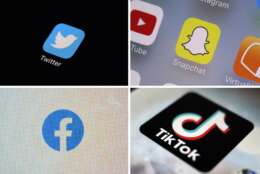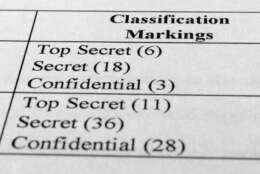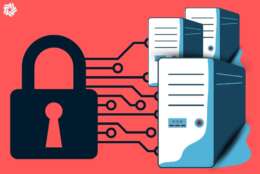Commentary
-
As a best practice, commercial firms leverage their buying power when acquiring supplies and services to support business operations.
June 30, 2023 -
While it is not uncommon for Congress to intervene when federal programs are not serving the public interest, it is unfortunate that a new law must be considered to fix the misguided implementation of "eIVES."
June 29, 2023 -
Ransomware attacks are now a topline concern for businesses everywhere.
June 28, 2023 -
For decades, the U.S. Army's negligent handling, storage and disposal of toxic substances have been the source of enduring health repercussions.
June 26, 2023 -
Social media provides government agencies with a powerful tool to keep citizens informed and combat crises through channels that will reach the modern constituent.
June 23, 2023 -
To the CHCO community, congratulations for leaning in on strengthening human capital management in the federal government. The HR profession and public service are better for your sustained efforts.
June 22, 2023 -
Acquisition is more than a routine, if complicated, administrative process. It takes skill, collaboration and strategic thinking.
June 22, 2023 -
One of a start-up’s most valuable assets is intellectual property. Whether you are trademarking your name, securing a patent or acquiring licensing rights, it can help a start-up accelerate sales, stakeholder trust and overall company value.
June 21, 2023 -
Even with some evident progress, federal agencies need to move faster to meet the administration’s ambitious climate goals
June 20, 2023 -
Preventing breaches through cyber awareness: How every federal employee contributes to cybersecurity
Instead of waiting for cyber-specific positions to be filled, the White House has prioritized strengthening the current federal workforce through cyber education and skills-based training.
June 19, 2023 -
In March, the White House unveiled a new National Cybersecurity Strategy, which deviates from the National Cyber Strategy rolled out by the Trump administration in 2018. Among the changes implemented in the new strategy is a call to “rebalance the responsibility” of defending cyberspace, including a move away from end users and toward the “most capable and best-positioned actors,” including owners and operators of key technologies and infrastructures.
June 16, 2023 -
How do you stop a 21-year-old national guardsman like Jack Teixeira from leaking classified information? Wrong answers to this question have quickly become very popular.
June 15, 2023 -
Amid the recent spate of high-profile cyberattacks, government agencies and private-sector organizations alike are scrambling to fend off unauthorized intrusions that can compromise digital assets, disrupt operations and derail attainment of critical missions.
June 14, 2023 -
The U.S. federal government possesses some of the strongest cybersecurity in the world with a GCI score of 100. This intense cybersecurity is no surprise, as the federal government is tasked with protecting the nation’s most precious assets, like classified data and critical financial information and defending against the most malicious, well-funded and motivated attackers. This large scope of the critical assets to defend has made the federal government one of the biggest spenders on cybersecurity in the world, and as cyber threats continue to evolve, investment in cybersecurity will continue to grow.
June 13, 2023 -
Dan VanBelleghem, a senior director, cybersecurity programs, at General Dynamics Information Technology (GDIT), explains how agencies can stay ahead of cyber attackers.
June 12, 2023















